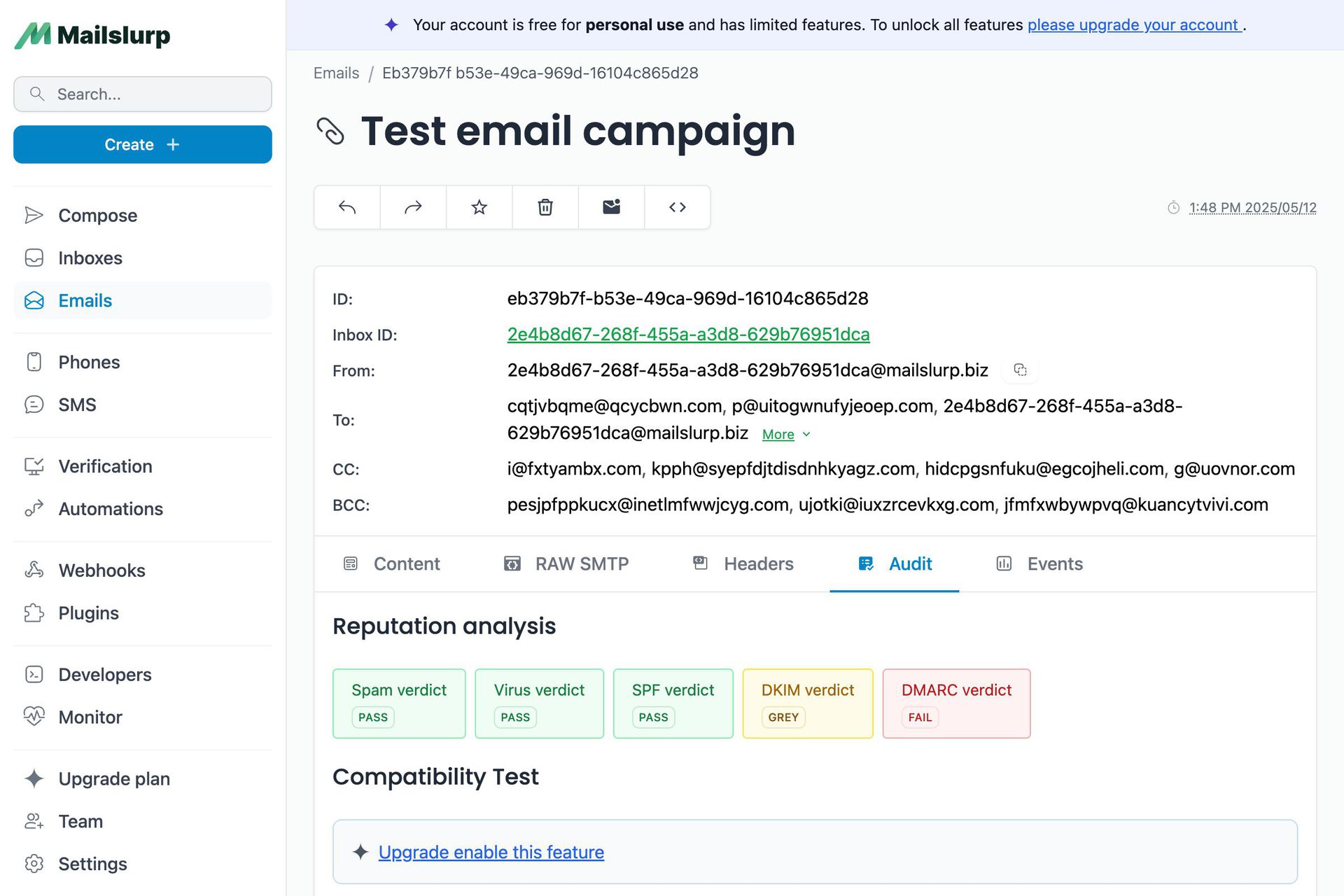Videos
Check out our tutorial video series.
How to Use MailSlurp Email API with Xcode to Send and Receive Emails in Swift: A Comprehensive Guide for iOS App Developers

How to send and receive email in Swift using MailSlurp email API in conjunction with Xcode. For a more generalized guide see the send emails in Swift example.
MailSlurp is a library with iOS/iPadOS/MacOS/TVOS support via swift and objective C for sending an receiving emails from real email addresses in code an tests. Use MailSlurp to test iOS apps end-to-end using test email accounts or embed MailSlurp to send and receive emails from apps.
To get started using MailSlurp first create a new XCode project









You can also use Package.swift and Swift Package Manager to install MailSlurp:
Run to install dependencies.
The MailSlurp library creates controllers for every endpoint on the MailSlurp REST API
Check out our tutorial video series.
Email and SMS guides for automation and testing.
View github project code for multiple languages.
Latest posts from the MailSlurp team.
Test, build, and automate messaging with a free MailSlurp account.
